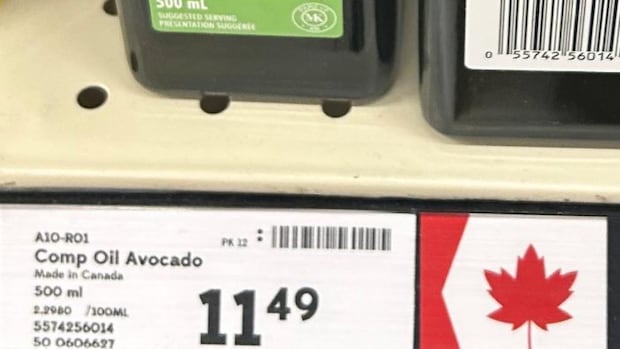No fines for big grocers that promoted imported food as Canadian

I like to support local businesses and products, and when I saw the maple leaf symbol and ‘Made in Canada’ label, I assumed it was a Canadian product. But when I read the fine print, I was disappointed to discover it was imported.”
Young’s complaint prompted a CFIA investigation, which confirmed the misleading signage. Sobeys took action to rectify the error, but Young feels more needs to be done to prevent such deceptive practices.
The concept of “maple washing” has gained attention in recent months, with consumers becoming more vigilant about checking labels and holding grocers accountable for false advertising. The Buy Canadian movement is gaining momentum, as more shoppers prioritize supporting local producers and businesses.
The CFIA’s role in enforcing accurate country-of-origin labelling is crucial in maintaining consumer trust and ensuring fair competition in the marketplace. While the agency has taken action in the cases of maple washing, the lack of fines or penalties raises concerns about the effectiveness of current regulations.
Moving forward, it is essential for grocers to prioritize transparency and accuracy in their product labelling. Consumers like Brenda Nicholls and Sheila Young are advocating for stricter enforcement measures to prevent misleading practices and uphold the integrity of Canadian branding.
As the CFIA continues to investigate complaints and monitor compliance with food labelling regulations, it is hoped that grocers will take proactive steps to address any inaccuracies and uphold the standards of truth in advertising. Only through collective efforts between regulators, retailers, and consumers can we ensure a fair and transparent marketplace for Canadian products. When it comes to food labels, accuracy is key. Many consumers trust that the information provided on packaging is truthful and transparent. However, a recent investigation by CBC News has revealed that this may not always be the case.
One such case involved a complaint filed by a consumer named Young with the Canadian Food Inspection Agency (CFIA) regarding misleading labeling on avocado oil. It was discovered that the oil was falsely promoted as a Canadian product, despite being imported. This is a practice known as “maple washing,” where products are labeled with Canadian symbols to give the impression of being domestically produced.
Young expressed frustration with the lengthy resolution process, which took four months for the CFIA to address. While the agency eventually removed the misleading signage for the oil, Young believes that the retailer, Sobeys, should be held accountable for the delay.
The CFIA responded by stating that they take food mislabeling seriously and consider various factors when determining enforcement actions. They emphasized the importance of companies being responsive and proactive in resolving such issues.
In light of these findings, consumers are urged to be vigilant when reading labels. Dewhirst, a food industry expert, advises shoppers to carefully scrutinize all information and not make assumptions based on symbols like the maple leaf. This is especially important given the prevalence of mislabeling incidents.
For Nicholls, who experienced mislabeling firsthand, she now prefers to shop at independent stores that specialize in locally produced food. She believes that consumers have the power to influence change by supporting businesses that prioritize transparency and accuracy in labeling.
Ultimately, the responsibility lies with both retailers and consumers to ensure that food labeling is honest and accurate. By staying informed and making informed choices, we can contribute to a more transparent and trustworthy food industry.




